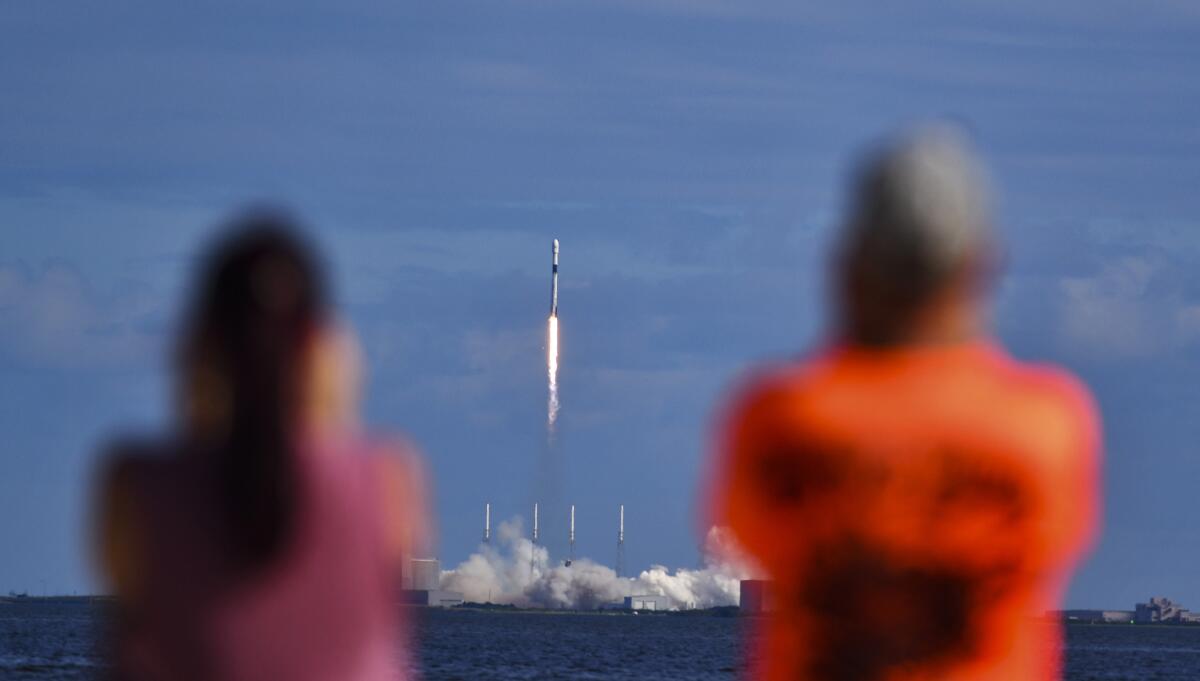SpaceX broadband service will be ‘bumpy’ at first, Gwynne Shotwell says

- Share via
When SpaceX’s broadband service starts mid-2020, the initial experience will be “bumpy,” company President Gwynne Shotwell said Friday.
However, she said she expects SpaceX to mature as an internet service provider by 2021.
The company will take pre-sales for customer service, similar to what fellow Elon Musk-led company Tesla Inc. has done for new vehicles, Shotwell said during a media roundtable at the company’s Hawthorne headquarters. And early customers will be part of that learning curve.
“We’re not going to fib and say it’s going to be the best thing ever,” she said. “When you get service, it’s going to be great. But it’ll be bumpy for a while.”
SpaceX has already launched two rounds of 60 satellites each. The company expects it will need 24 launches, with about 1,440 satellites, to have enough to provide full global coverage. SpaceX has not yet determined customer pricing.
Shotwell said subsequent launches will see satellites with experimental coatings to reduce their brightness in the sky, which has been a concern for astronomers who fear the satellites could affect telescope images. The satellites are in low-Earth orbit and there could be a lot of them — SpaceX has asked an international regulatory group for permission to eventually operate as many as 30,000 satellites.
In addition to the satellite broadband service, SpaceX is also continuing to work on its capsule, which is intended to begin carrying NASA astronauts to the International Space Station as early as February.
The next hurdle for the company’s Crew Dragon capsule is its in-flight abort test, scheduled for Jan. 4. The test will simulate what would happen if the crew needed to immediately blast away from the rocket in an emergency.
On the military side, the company is competing against Northrop Grumman Corp., billionaire Jeff Bezos’ Blue Origin and United Launch Alliance, a joint venture of Lockheed Martin Corp. and Boeing Co., for future national security launch contracts. Currently, only SpaceX and ULA launch spy satellites for the U.S. government.
The U.S. Air Force is expected to select the two winners next year. Though Shotwell said she hopes the company will win — SpaceX bid its workhorse Falcon 9 rocket and its larger Falcon Heavy rocket, both of which have been used to launch national security missions — she added that the company’s customer base is diverse enough to weather a loss.
“It will be a very unhappy day at the company for sure,” she said. “But we will survive.”
More to Read
Inside the business of entertainment
The Wide Shot brings you news, analysis and insights on everything from streaming wars to production — and what it all means for the future.
You may occasionally receive promotional content from the Los Angeles Times.











